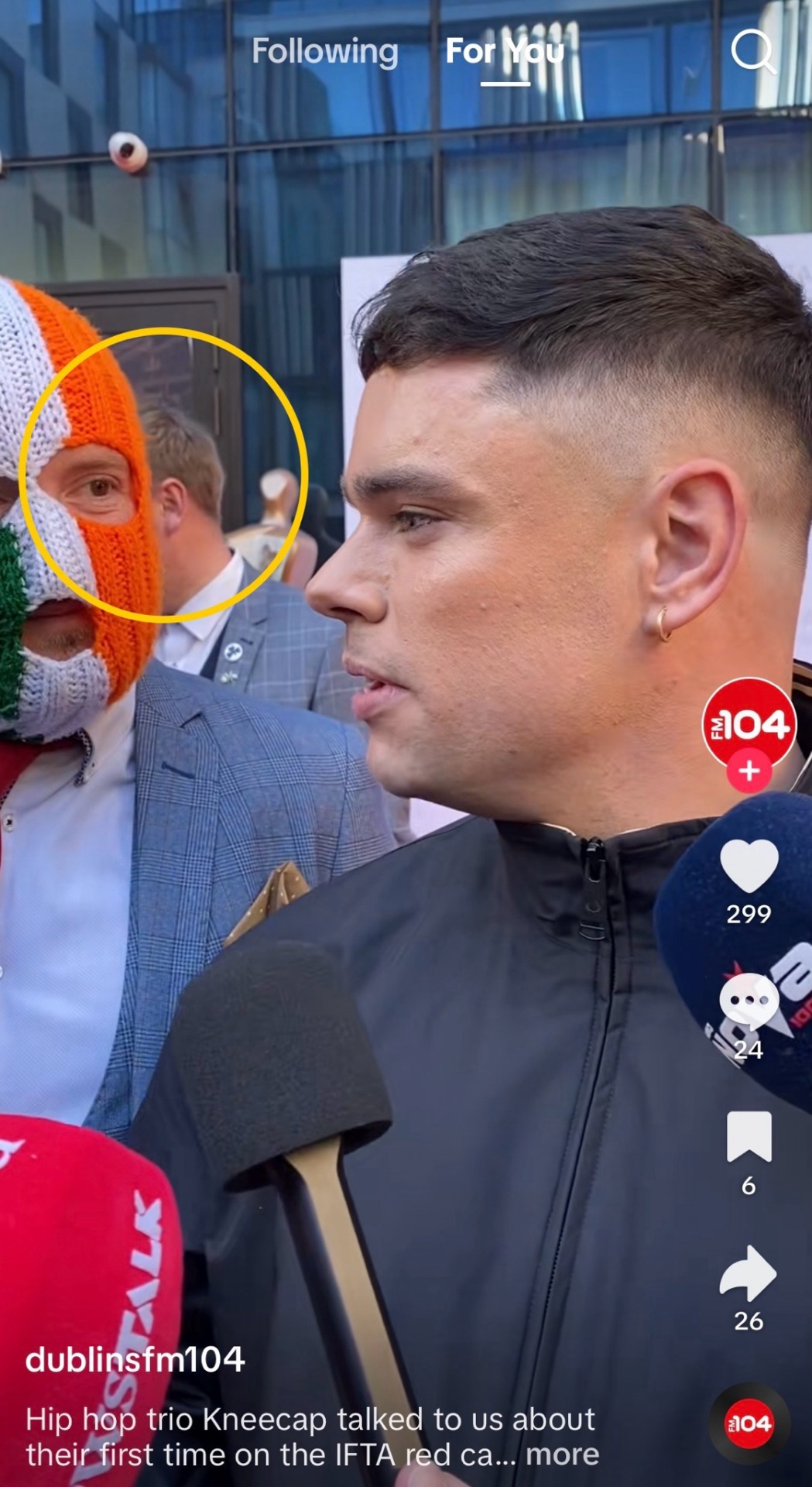#Received 27 April / Responded 28 April 2024
Explore tagged Tumblr posts
Text

Thanks for the message, Anon. 😃
Yeah… no…
Here are screenshots from your link:



The “picture” screenshot was taken from an IFTA red carpet interview by Eric Roberts and India Sasha, recorded Live on TikTok.
IFTA was interviewing Best Supporting Actor - Drama nominee Emmett J. Scanlan (Kin), as the full image shows.

Brian’s post 21 April 2024
So tell me... why would a Scotsman, who hasn't been in any IFTA-nominated production, and isn't presenting nor receiving an IFTA Award, be standing in the interview area on the IFTA red carpet?
He wouldn’t. (And the actual “Scotsman” in attendance walked behind the interview area, alongside the building, and straight into it, as previously noted here.)
So who might the tall blond man in the blue circle ⬇️ standing behind India be? And what is the wee bit of orange in the orange oval behind Eric?

Could Blue Circle Man be part of Kneecap’s entourage?



It’s more likely he is. Kneecap was at the IFTAs, after all.
And why the balaclava? 😂
Remember… DJ Próvaí’s signature green-orange-white balaclava hangs backstage at Bowery Ballroom. He began wearing the disguise when the band was first taking off, and he was still employed as a teacher. "It didn't stop him from being thrown out of the school," says Móglaí Bap. Adds Mo Chara: "It was the worst-kept secret in Ireland." — Rolling Stone
#Tait rhymes with hat#Good times#Inbox#Speculation#Identification#IFTA#Not there August ‘22 or April ‘24#Received 27 April / Responded 28 April 2024
25 notes
·
View notes